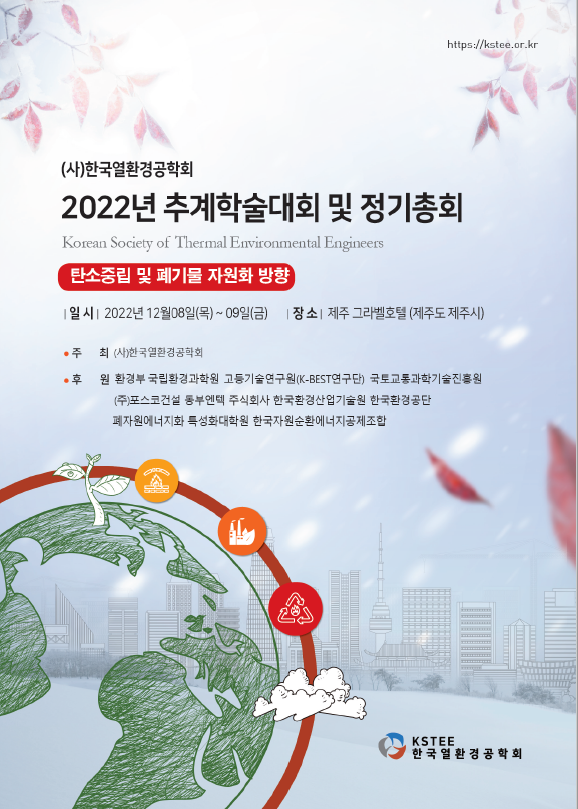고온 플라즈마 용융을 통한 비산재의 지속가능한 재활용 적용성 평가 연구
Applicability Assessment of a Plasma Melting Process for a Sustainable Fly Ash Recycling System
- 한국환경에너지공학회
- 한국환경에너지공학회 학술대회지
- 2022년 추계학술발표회
-
2022.12369 - 369 (1 pages)
- 3

The largest domestic landfill in the Seoul metropolitan area is at capacity and the Ministry of Environment recently announced a ban on direct landfilling of municipal waste beginning in 2026. Therefore, the volume of wastes incinerated and the associated incineration ash are expected to increase. Therefore, in this study, municipal solid waste incineration fly ash (MSWIFA) was selected as a research target because it cannot be recycled in a sustainable recycling technology because of its high loss of ignition and high heavy metal content. It is mostly landfilled as designated waste, unlike bottom ash with a relatively high recycliI1g rate. Samples of MSWIFA were collected from 14 incineration facilities located in the Seoul metropolitan area. In addition, our research on the recycling of MSWIFA included a literature review, the analysis of its basic characteristics, and melting experiments. In the plasma melting process, we used the 100 Kwh plasma torch (50 kg/h) operated at 100 N220 V. The operating temperature of the torch ranged from 5,000 to 10,000°C , and the reactor temperature was maintained at 2,000°C or higher. The melting conditions adjusted for reduction conditions by N₂ gas. Under reduction conditions, the slag and metal layers were separated. Additionally, the water-cooling centrifugal bubbling apparatus reduced the temperature of flue gas and collected dust and sulfides. The flue gas was emitted through the induced draft fan/stack. In the leaching analysis, the results showed that seven heavy metals (Arsenic, Cadmium, Chromium, Copper, Cyanide, Lead, Mercury) from melted MSWIFA slag (MFAS) were not detected along with a chlorine reduction rate of 99.3%. The hazardous heavy metal contents from MFAS met all the level of soil contamination on Soil Environment Conservation Act in South Korea.
(0)
(0)